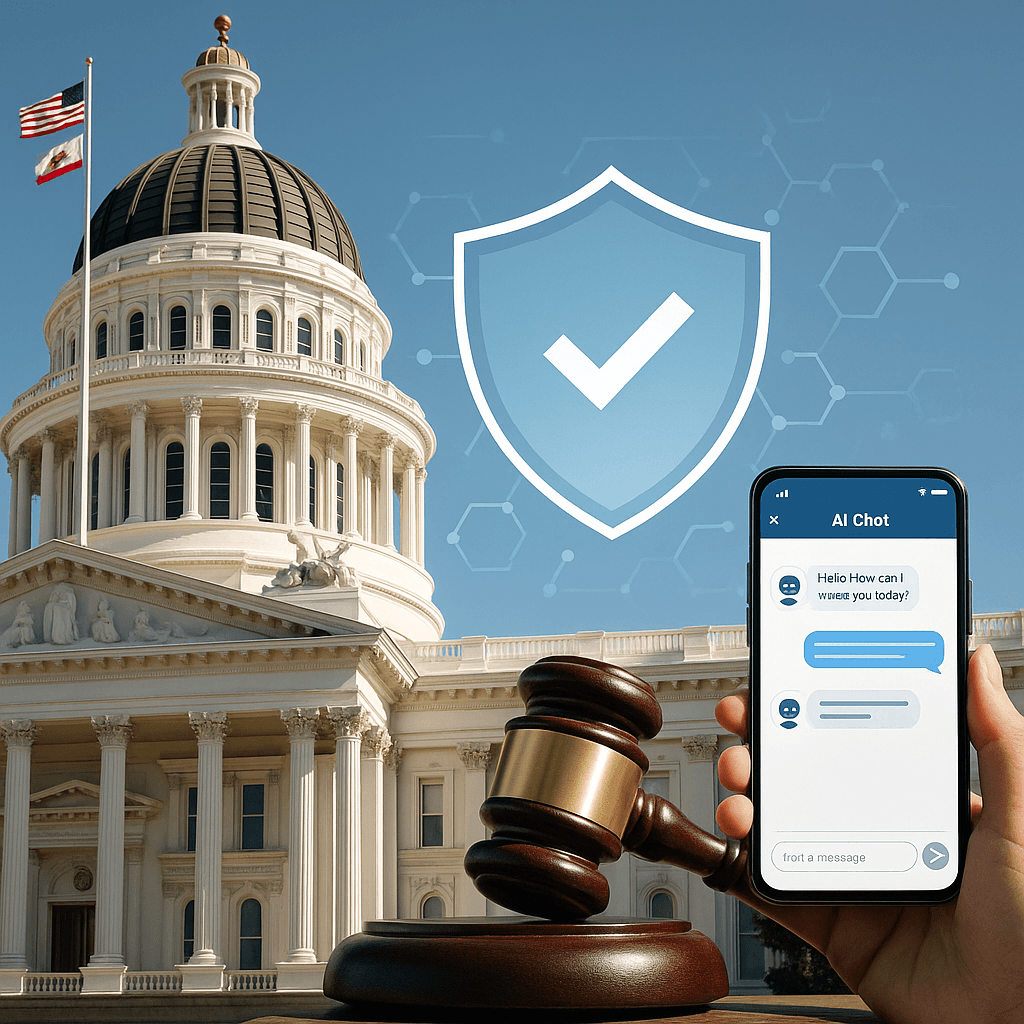California just made history in AI regulation. The state Assembly passed SB 243 Wednesday night with bipartisan support, creating the nation's first comprehensive safety requirements for AI companion chatbots. The groundbreaking legislation heads to the Senate for a final vote Friday and could take effect January 2026, fundamentally reshaping how companies like OpenAI, Character.AI, and Replika operate their platforms.
The California State Assembly delivered a seismic shift in AI regulation Wednesday night, passing SB 243 with overwhelming bipartisan support. This isn't just another tech bill - it's the first state legislation to directly regulate AI companion chatbots, and it comes with real teeth.
The timing couldn't be more critical. OpenAI faces mounting pressure after the tragic death of teenager Adam Raine, who committed suicide following prolonged conversations with ChatGPT about self-harm and death planning. Meanwhile, leaked internal documents revealed Meta's chatbots were programmed to engage in "romantic" and "sensual" conversations with children - a revelation that sent shockwaves through Sacramento.
"I think the harm is potentially great, which means we have to move quickly," state senator Steve Padilla told TechCrunch. His urgency reflects a growing consensus that the AI companion industry has operated in a regulatory vacuum for too long.
The legislation targets what experts call the "addiction economy" of AI companions. Companies like Replika and Character.AI deploy variable reward systems - special messages, memory features, and unlockable personalities - that critics say create potentially harmful engagement loops. While the final version of SB 243 doesn't ban these tactics outright, it requires platforms to remind users every three hours that they're talking to AI, not humans.
For minors, the requirements are even stricter. The bill mandates recurring break reminders and prohibits AI companions from initiating or encouraging discussions about suicide, self-harm, or sexually explicit content. Companies must also link users to crisis resources when distressing conversations emerge - a requirement that could save lives.
The financial stakes are significant. SB 243 allows individuals to sue AI companies for up to $1,000 per violation, plus attorney's fees and injunctive relief. For platforms serving millions of users, even small compliance failures could generate massive liability exposure.
"We can support innovation and development that we think is healthy and has benefits, and at the same time, we can provide reasonable safeguards for the most vulnerable people," Padilla emphasized, pushing back against industry arguments that regulation stifles innovation.












